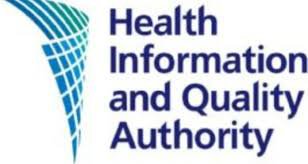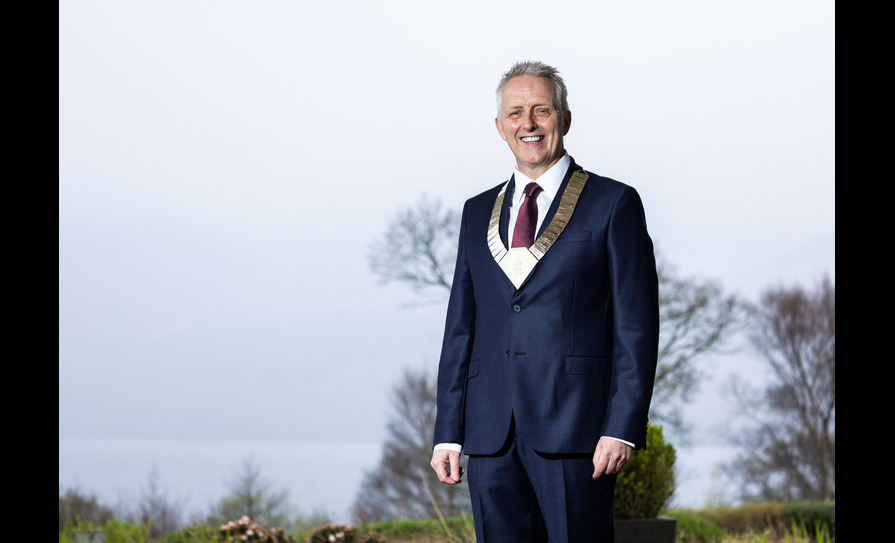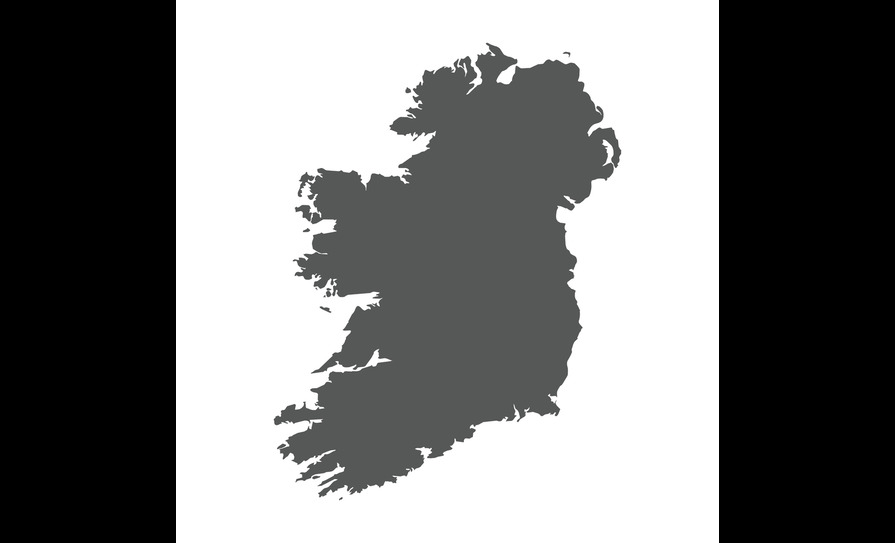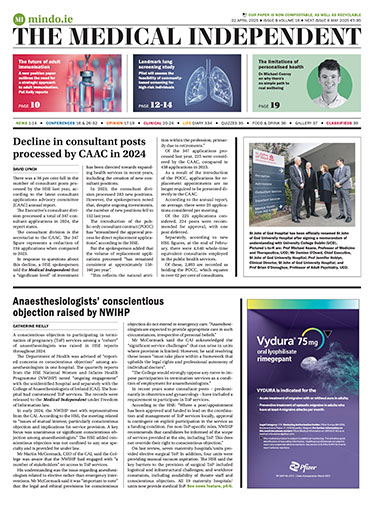The investigation ,requested by the Minister for Children and Youth Affairs Katherine Zappone TD following Tusla’s handling of a false allegation about a garda whistle-blower, makes 4 main recommendations for the Department of Children and Youth Affairs and for Tusla, in addition to other actions which Tusla must urgently take.
These include the Department establishing an expert quality assurance and oversight group to support and advise on the implementation of these recommendations and the Department and Tusla seeking the assistance of the higher education and training bodies to create formal career-paths for students and graduates to reinforce child protection and welfare services.
Mary Dunnion, HIQA’s Director of Regulation, stated: “It is vital that Tusla’s governance structures to support the implementation of the findings and recommendations of this investigation report are clear, and include a named accountable person within Tusla who has the overall delegated responsibility for implementing these recommendations. The associated implementation plan should include clear timelines against each action and identified individuals in Tusla who are responsible for implementing those actions.
“We acknowledge there is now a clear strategic direction and a long-term vision of what Tusla wants to achieve, and there are structures and systems in place to govern Tusla child protection and welfare services. However, these are not comprehensively and consistently understood, embedded or implemented in front-line practice in the services areas visited by the Investigation Team. A shortage of qualified social work staff is undoubtedly contributing to delays in the appropriate management of referrals and the early assessment of children at risk. However, Tusla, in conjunction with the Department of Children and Youth Affairs, has to manage the same workforce challenges faced by other jurisdictions and avoid an organisational mind-set that sees such problems as insurmountable due to factors outside its control.”
While appropriate action had been taken by social workers when children were assessed as being at immediate and serious risk, the investigation found some children are being left at potential risk due to a number of failures at operational level. These include failures to consistently implement Tusla’s national policies and business processes, accurately record important decisions made and actions taken, monitor the effectiveness of the steps taken to protect children,support staff members’ personal development and manage under-performance.
These failings stem from a gap between national Tusla policy and what is actually happening on the ground. The Investigation found shortfalls in how child abuse allegations were screened, how safety plans for children were developed and managed, how people who were the subject of an allegation of abuse were communicated with.
It identified systems risk as a result of three main defective points in Tusla’s response to managing allegations of child sexual abuse, including allegations made by adults about being abused when they were children, and which in some cases, left children at potential risk. Tusla must now address as a matter of urgency:
<strong> </strong>
<strong> </strong><strong>A. Screening and preliminary enquiry</strong>
The investigation found inconsistencies in practice around the screening of allegations of child sexual abuse and making preliminary enquiries into these allegations, which meant that not all children at potential risk were being assessed and where necessary, protected by Tusla, in a timely and effective manner.
<strong> </strong><strong>B. Safety planning</strong>
Inconsistencies in safety-planning practice by Tusla for children meant that while some children were adequately safeguarded, others at potential risk were not. Even for children who had a safety plan, these plans were not always reviewed to ensure the continued safety and wellbeing of the child.
<strong> </strong><strong>C. Management of retrospective cases</strong>
While there was a policy on managing allegations made by adults of abuse during their childhood, it did not include a standardised approach to direct and guide staff in case management, leading to variation in practice and delays. Some people were not told that an allegation of abuse had been made against them and others were given only limited information.
Mary Dunnion continued: “The Investigation found that while Tusla focused on examining current risks to children, this often resulted in a lack of urgency in responding to allegations of abuse involving adults who alleged they had been abused as children. This meant that children who are potentially at risk — from adults who are alleged to have abused children in the past, and or who were convicted of child sexual abuse in the past, and who now have access to other children — may be missed.
“The deficiencies identified in this investigation demonstrate that some children and adults who come in contact with Tusla in connection with child sexual abuse and retrospective abuse allegations have a varied experience of Tusla services. While for some this was a positive one, others experienced lengthy delays or no response to their cases.
“Those with responsibility at executive and board level in Tusla must recognise that managing all allegations of child sexual abuse follows the same referral pathway as child protection and welfare referrals. As such, there is a significant risk that the deficiencies identified during this investigation in the pathway for allegations of child sexual abuse in a sample of the services provided by Tusla may be replicated across the wider child protection and welfare services. Therefore, the Investigation Team recommends, for the elimination of doubt in relation to actual or potential risk to children, that Tusla, as a matter of urgency, implements a time-bound action plan to effectively address these findings, to include ongoing evaluation and assurance.”
In other findings, while there was a system in place for the notification of suspected child sexual abuse between An Garda Síochána and Tusla, there was no electronic data transfer system in place between these two agencies. Instead, these notifications have to be sent by fax or posted, which is neither efficient, appropriate nor wholly secure. In addition, there was no agreed information-sharing protocol to facilitate good sharing of relevant information and which has the confidence of both agencies.
Mary Dunnion continued: “There was evidence of lengthy delays in responding to requests by Tusla for additional information from An Garda Síochána, which led to delays in creating informed safety plans for children. Conversely, members of the Gardaí reported that requests to Tusla for written reports were often delayed, and when provided, lacked the information which had previously being relayed verbally and which was needed to support criminal proceedings. In addition, Tusla reported ongoing investigations by Gardaí as contributing to delays in starting or completing assessments of some allegations. Tusla must ensure its own operational arrangements and cross-agency working practices enable it to fulfil its statutory duty to safeguard children.’’
The Investigation found poor quality record-keeping in the services reviewed, which could not assure HIQA about the quality and effectiveness of Tusla’s child protection and welfare service. The Investigation Team reviewed 164 cases reported as closed in six Tusla service areas and could not establish if some of the cases reviewed were actually closed.
Furthermore, the Investigation Team found cases which were inappropriately closed as there were outstanding child protection concerns. The Investigation Team also expressed concern about Tusla plans to continue to use paper records for cases involving allegations made by adults that they were abused as children.
Despite the serious issues which emerged during the investigation, the Investigation Team also found many examples of good practice by committed Tusla personnel in how they are managing allegations of child sexual abuse and retrospective abuse. Tusla staff were openly committed to child protection and welfare, and a number of managers openly took on board the investigation’s findings at that time and immediately addressed those risks identified.
It was also reported that there are good informal working arrangements between members of the Gardaí and Tusla staff. In addition, it is anticipated that a new Tusla and An Garda Síochána Children First joint-protocol for liaison between both agencies, agreed in December 2017, should formalise these informal working arrangements. The Investigation Team also welcomes the development by Tusla of its Child Protection and Welfare Strategy.
Mary Dunnion stated: “However, Tusla must now ensure that it now urgently addresses the systemic deficiencies identified by HIQA in its governance and support arrangements. This is necessary to ensure the effective and sustainable management of child sexual abuse referrals involving adults of concern, including where adults alleged they were abused as children.’’
HIQA acknowledges the progress to date by Tusla in its efforts to improve the quality and safety of services. Based on the findings of this investigation, HIQA — in consultation with Tusla, the relevant professional organisations and children’s advocacy groups — will begin the design in 2018 of an inspection programme to promote improvement in child protection and welfare services. In addition, in 2019, HIQA will begin to develop revised National Standards for Children’s Social Services.
Mary Dunnion concluded: “To inform the development of regulation of children’s social services in Ireland, HIQA will assist the Department of Children and Youth Affairs in reviewing international best practice in this area. Given the significant system-wide recommendations outlined in this report, it will be vital that there is the necessary political commitment to their managed implementation in order to promote sustainable improvements in the quality and safety of all child protection and welfare services.”













Leave a Reply
You must be logged in to post a comment.